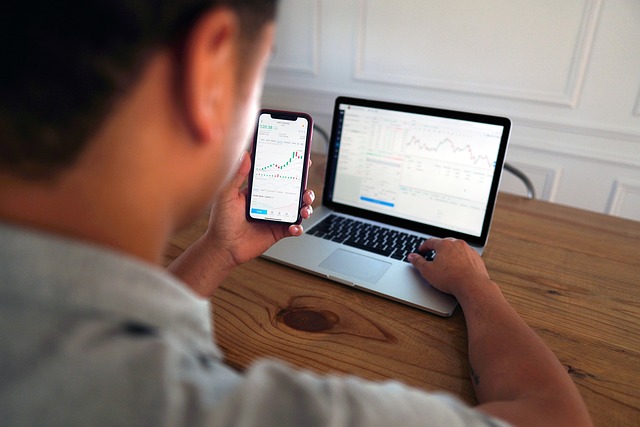An In-Depth Guide to Crypto Trading Tools: Empowering Your Journey in the Digital Currency Arena
Cryptocurrency trading has rapidly evolved from a niche interest to a mainstream activity, attracting a diverse range of participants—from casual investors to seasoned traders. As the market grows increasingly complex, the array of tools available to facilitate trading decisions has expanded significantly. Understanding and utilizing these tools can make a substantial difference in navigating the volatile crypto landscape. In this article, we will delve into the various types of crypto trading tools available, their functionalities, and how they can enhance your trading experience.

Understanding Crypto Trading Tools
Before we dive deeper, it is essential to understand what crypto trading tools are and why they matter. Crypto trading tools encompass a wide range of software applications designed to assist traders in evaluating market conditions, executing trades, and managing their portfolios more efficiently. They can be categorized broadly into three main types:
Market Analysis Tools
In the world of cryptocurrency trading, information is power. Market analysis tools are pivotal in helping traders make informed decisions based on a variety of indicators. Here are some prominent types of market analysis tools:
1. Charting Software
Charting software is crucial for visual representation of market data. Tools such as TradingView and Coinigy provide traders with advanced charting capabilities, allowing for the analysis of historical and real-time price movements. With features like trend lines, candlestick charts, and indicators such as Moving Averages (MA) and Relative Strength Index (RSI), traders can identify patterns and make predictions about future price action.
2. Technical Indicators
Technical indicators serve as essential tools for traders to assess market momentum and volatility. Some widely used indicators include:
By carefully studying these indicators, traders can devise comprehensive strategies that align with their trading goals. In my opinion, every trader should familiarize themselves with at least a few indicators to better navigate the market.
3. Fundamental Analysis Tools
While technical analysis is essential, it's equally important to keep an eye on the fundamental aspects of the cryptocurrency market. Websites like CoinMarketCap and CoinGecko provide valuable data, including market capitalization, trading volume, and circulating supply. Furthermore, keeping track of news outlets and social media can offer insights into market sentiment. In my view, fundamental analysis complements technical analysis, creating a holistic approach to trading.
Order Execution Tools
Once you've analyzed the market and formulated a trading strategy, effective order execution tools can facilitate the actual buying and selling of assets. Let's explore some key types of order execution tools:
1. Trading Platforms
Most trading occurs on specialized platforms, such as Binance, Kraken, and Coinbase. These platforms provide users with a seamless interface to buy and sell cryptocurrencies, execute trades instantly, and access charts and market analysis tools. It’s wise to choose a platform that not only offers low transaction fees but also provides security features.
2. Automated Trading Bots
Automated trading bots have gained popularity due to their ability to execute trades based on pre-set criteria without requiring constant human intervention. Tools like 3Commas and Cryptohopper allow traders to set up sophisticated trading strategies and let the bot carry out trades on their behalf. While I appreciate the convenience of these bots, I always advise users to carefully monitor their trading strategies, as market conditions can change rapidly.
3. Stop-loss and Take-profit Tools
Implementing stop-loss and take-profit orders can save traders from significant losses and ensure that profits are realized at optimal points. Most exchanges offer facilities to set these orders, which automatically execute trades when the price reaches a pre-defined level. In my opinion, these should be integral to any trading strategy to manage risk effectively.
Portfolio Management Tools
As you engage more deeply with the crypto market, tracking your investments becomes a crucial practice. Portfolio management tools help you monitor asset performance, evaluate your overall investment strategy, and optimize your portfolio based on changing market dynamics. Here are some popular tools:
1. Portfolio Trackers
Applications like Blockfolio and Delta allow users to track their crypto portfolios in real-time. These tools provide insights into market value, profit/loss, and overall performance, making it easier for traders to assess their standing. Personally, I think that maintaining a detailed portfolio tracker is essential for anyone serious about crypto trading.
2. Tax Calculation Tools
Tax season can be daunting for cryptocurrency traders. Tools such as CoinTracker and CryptoTrader.Tax help calculate your taxable gains and losses, fact-checking your records and ensuring compliance with tax laws. It's vital, in my view, for traders to stay informed about their tax obligations as crypto regulations continue to evolve.
3. Risk Assessment Tools
Risk management is perhaps the most crucial aspect of trading. Tools such as Riskalyze provide assessments that identify how much risk a trader is taking and the potential impacts on their portfolio. Understanding your risk profile, in my experience, is a prerequisite for successful and sustainable trading.
The Future of Crypto Trading Tools
As the cryptocurrency market evolves, so too will trading tools. Emerging technologies, such as artificial intelligence and machine learning, are already starting to take shape in this space, providing traders with unparalleled insights and execution capabilities. These advancements promise to revolutionize how traders interact with the market, possibly even leading to fully autonomous trading agents.
In conclusion, a comprehensive understanding of crypto trading tools can significantly enhance your trading experience. Whether you are interested in market analysis, order execution, or portfolio management, the right tools can empower your decision-making and optimize your trading strategies. While technology undoubtedly plays a pivotal role in modern trading, developing a solid foundation of financial knowledge and emotional discipline remains paramount. Adaptability and continuous learning will be your greatest allies in this ever-changing landscape. Happy trading!